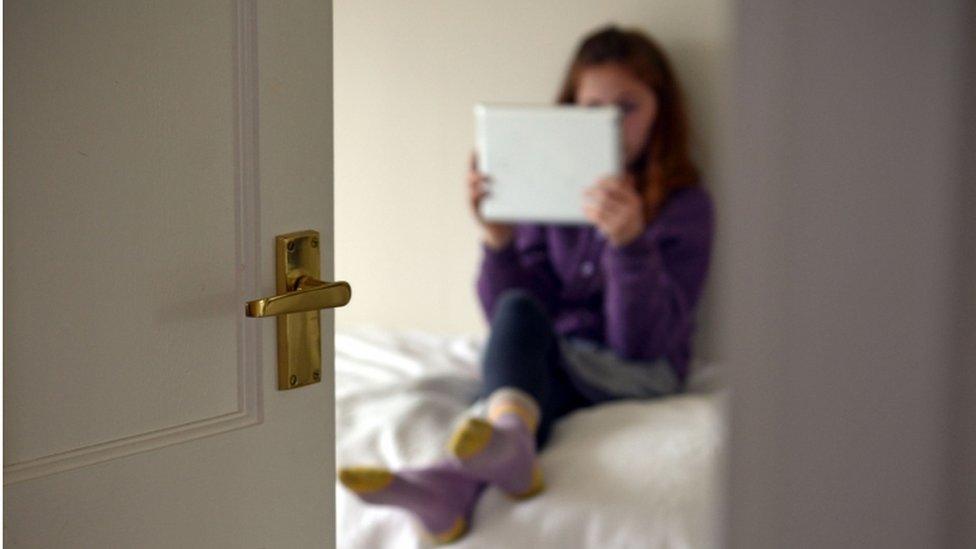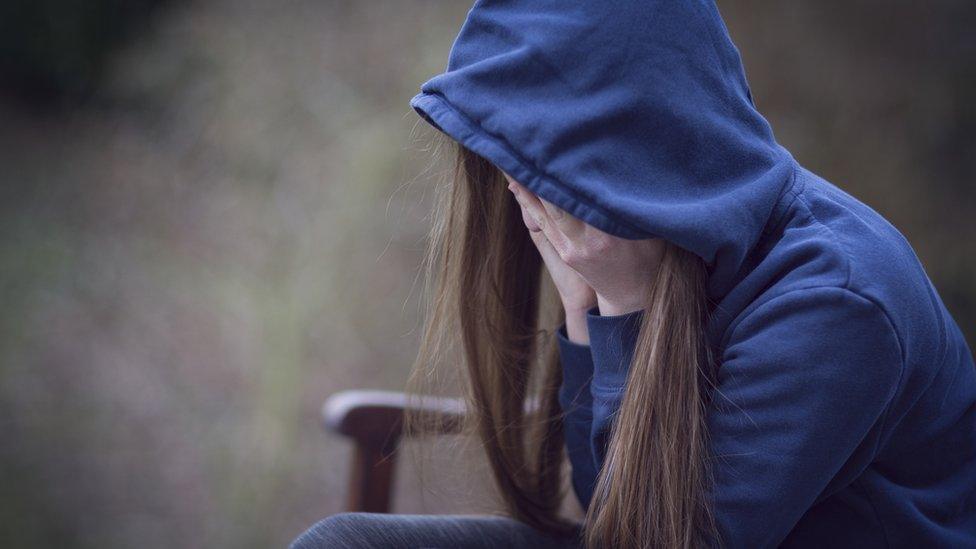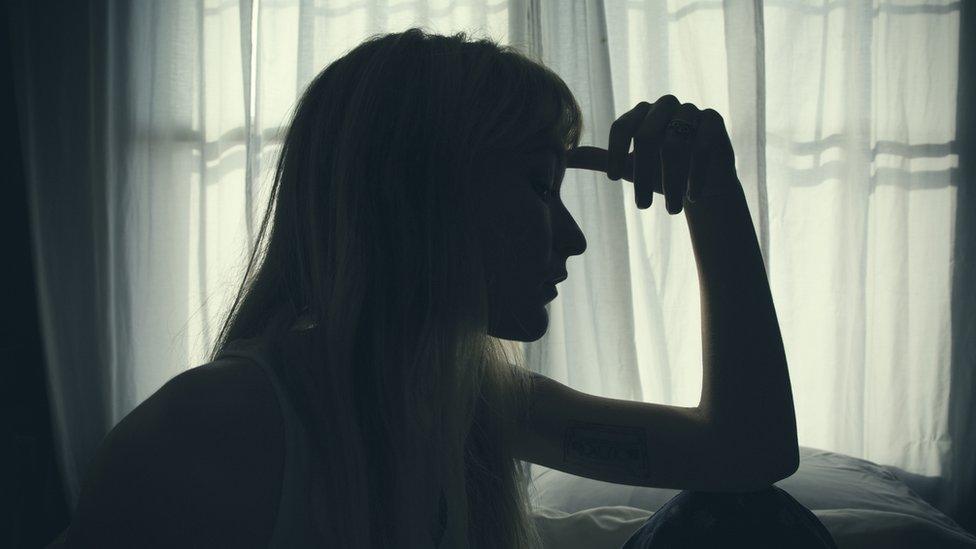Sexual exploitation: Rise in at-risk young people missing from care
- Published

The number of young people who went missing from NI care homes and are at risk of child sexual exploitation (CSE) is at its highest since 2018, figures show.
A total of 37 young at-risk people went missing across the five health trusts in 2021/2022, according to the Department of Health.
The highest number was recorded in the Western Health Trust.
The total figure doubled from seven in 2020/2021 to 14 in 2021/2022.
Child sexual exploitation can happen in person or online, according to Paul McCafferty from the Voice of Young People In Care.
"CSE can be physical contact sexually with a child or young person, but it can also include non-physical activities," Mr McCafferty told BBC Radio Foyle.
"This can include young people producing sexual images, (someone) forcing a young person to watch sexual images or to take part in different things.
"The actual grooming of a child can also be classed as child sexual exploitation as well."
'Scratching the surface'
Mr McCafferty said they are seeing more vulnerable young people entering the care system than ever before and believes there "are more risks out there" if they go missing.
He described the latest figures as "scratching the surface" and said "it's a failure if even one young person is a victim of CSE".
"We need to work together to try to stop this from happening, but my main thing is we need to listen to the young people that have experienced this," he said.
"It's about getting young people involved in what we do moving forward."
The Police Service of Northern Ireland (PSNI) Public Protection Branch said it has a dedicated child sexual exploitation team that works closely with partners to identify children at risk.
It said it puts measures in place to safeguard and aid investigations if a child is reported missing.
"When a missing child is located and returned back to a care home, officers have a number of safeguarding processes to follow depending on the circumstances," Det Supt Gary Reid said.
"These are put in place to mitigate any future risk of that child going missing and to identify whether or not they have been a victim of any form of criminality," he added.

Child sexual exploitation can happen in person or online, according to Paul McCafferty from the Voice of Young People In Care
A Western Trust spokesperson said that when a young person goes missing from the care system there is a collaborative response from the trust and the PSNI.
"The Western Trust, like other trusts across the region, is required to report to the Department of Health in relation to instances when young people are missing from their care for 24 hours or more.
"This is particularly the case when a child has been reported missing and at risk of child sexual exploitation," they said.
The spokesperson added the Western Trust is "proactive in reporting young people who go missing" and "will continue to work in collaboration to protect at-risk children/young people from child sexual exploitation".
'Take necessary actions'
The Department of Health said there were "well-established arrangements in place" requiring relevant agencies to take "actions to safeguard any child who goes missing and prevent future risk of harm".
"Those at risk of CSE are identified by a co-ordinated, interagency and multi-disciplinary risk assessment.
"On the basis of that assessment, actions are taken to safeguard and protect a child or young person who is a victim of CSE or who has been assessed as being at risk of CSE."
The department accepted that while there has been an increase in the number of young people at risk of child sexual exploitation reported as having been missing for a period of time over the last four years, it said that there "has been an overall decrease since reporting commenced in 2016/17 of 10%".
It noted that "this decrease was within the context of a significant increase in the number of children in care".
It added that as of 31 March 2021, 3,530 young people were looked after in care in Northern Ireland and that it is the highest recorded number since the introduction of the Children (Northern Ireland) Order 1995.
Safeguarding Board for Northern Ireland's (SBNI) chair Bernie McNally said the figures are worrying.
A number of initiatives have been in place over recent years to protect children, she added.
That includes specialist social workers being placed with police teams, additional training with care home staff and an awareness-raising campaign to encourage people - especially those who work in the night-time economy - to come forward with information should they see anything untoward.
The SBNI brings together a number of agencies and organisations which oversee the safeguarding and welfare of children and young people in Northern Ireland.
Ms McNally said all organisations who work with at -risk children "are really trying to work alongside the young people".
If you have been affected by any of the issues in this report, support is available at the BBC Action Line.
Related topics
- Published20 June 2022

- Published21 June 2022
